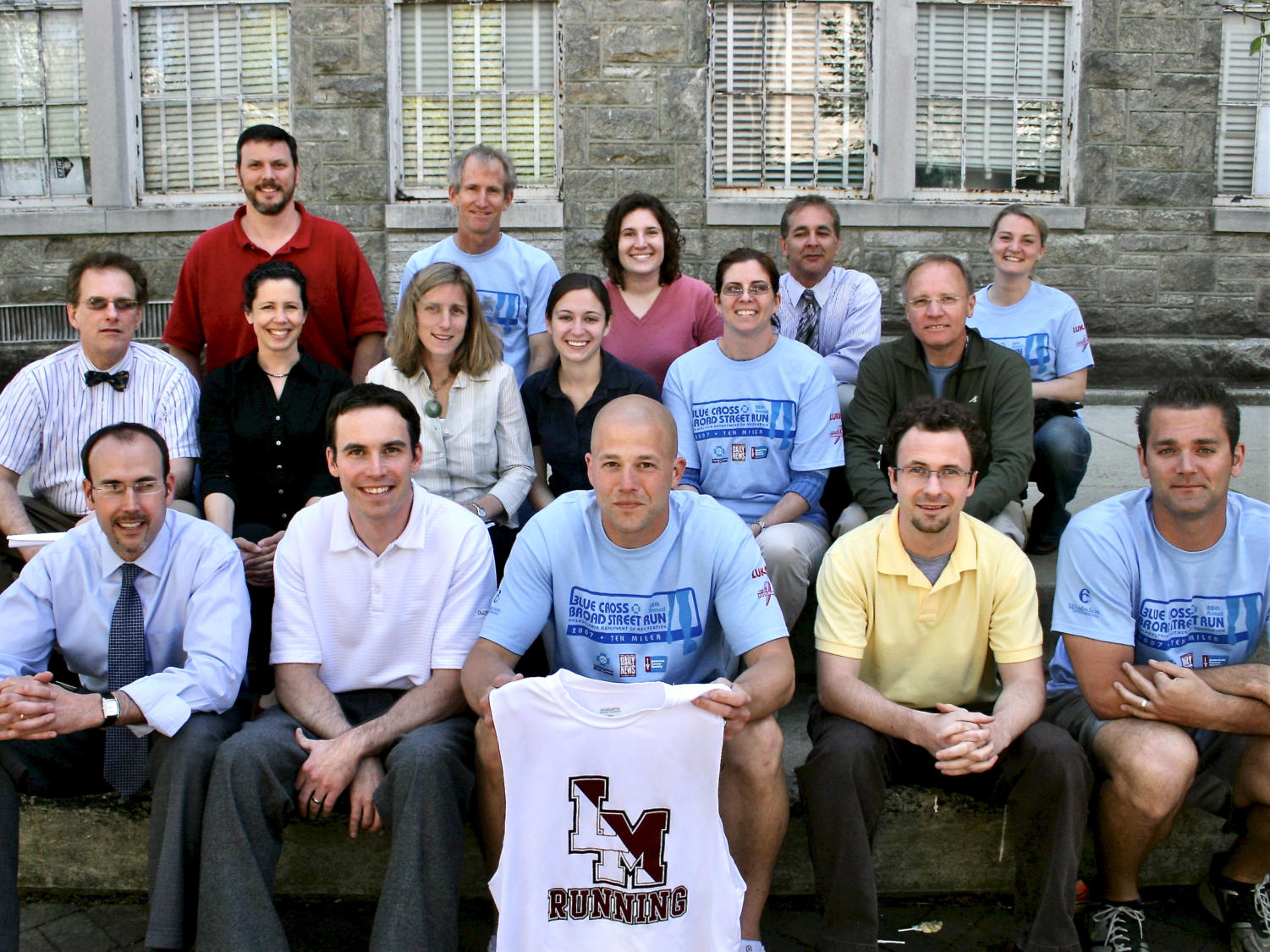Dana Flynn
When someone you know dies, it is really easy to represent the relationship you had with that person as better than it was, to make it perfect by only remembering the really good moments. I’m not going to do that. Mr. Hughes and I didn’t always agree with each other’s philosophical approach to education. He thought I was too exacting. I thought he was too lenient. Nonetheless, we both respected each other. Not every boss will let you disagree. Not every boss will listen to your point of view. Not every boss will be able to see your strengths when you’re not on the same page. But my boss could. So, without perfecting our relationship, I can truthfully say that he lived his life by his favorite motto.
For me, there is one moment that stands out from the rest that truly shows how deeply Mr. Hughes embodied “Character Counts.” Sean and I went through something traumatic last winter. It was the focal point of our life for weeks. I believe that any boss would have been sympathetic. However, I do not believe that every boss would have been as thoughtful, supportive, and attentive as Mr. Hughes. It can be argued that if you want to get paid, you need to fulfill all aspects of your job no matter what. If you can’t focus, too bad. If you can’t stop crying, tough luck. If you can’t sleep more than two hours a night, that’s life. But we had a boss who went beyond the objective view of employment. Mr. Hughes looked at us as people, as colleagues, as friends who desperately needed his support—and he gave that to us.
In my long life of working, from paper routes, summer jobs, part-time jobs during college, and full-time work after college, Mr. Hughes was my best boss. I’m not likely to have another one like him. Every time I think of what the word “character” stands for, I will think of him, and I will miss him.
***
Sean Flynn
Dana is right about Sean being a supportive and compassionate boss. In my career as a lawyer, I’ve had to supervise other lawyers and hire and fire staff. I wish I had demonstrated half the humanity in that role as Sean exemplified.
I came to know Sean as a friend during my first few years at LM, when he was an Assistant Principal and my informal mentor. We bonded over daily discussions about teaching strategies. Sean taught the same History courses that I had been assigned, and he accumulated file drawers of plans, ideas, and assessments for teaching Social Studies. He was generous with his time and he gave great advice for dealing with struggling kids. And he came to my defense when I lost it a few times in the classroom. When I was slated to be force-transferred to Harriton a while back (I had even been given the list of classes I’d teach there), Sean worked with several of my colleagues over the summer and found a way for me to stay at LM. We would run together after school with Mr. Cahill along Montgomery Avenue. We’d share stories about teaching, about our families, and about a work-life balance. After Sean became Principal, the workouts moved to the morning in what is now the weight room, where a group of us would start our day. There was a lot of fun banter there. I had to drop out of that crew a few years ago, but Sean was always a daily fixture there.
Sean had an “inner circle” of close friends; I wasn’t in it. But I was in an “outer circle”—and Sean never made me feel there was a bit of difference. That was no more evident than during the trauma Dana wrote about. In January, I was diagnosed with ALS. Those of you who have had to deal with this in your own family know that it is a challenging disease with no cure. When I told Sean, he was devastated for me. He was also overwhelmingly supportive. I could take off as much as I wanted; he even offered to take some of my classes if I needed that. Incredibly, five weeks later, we learned that I had been misdiagnosed. I gave Sean the good news in his office and he jumped out of his chair to give me an embrace. He was as happy for me and Dana as my family was when I told them. I can now imagine the countless number of times over the years that Sean was asked to listen to and respond to the anguish and the joy of his staff and students. He embodied what we mean by being genuinely empathetic.
When I retired at the end of the school year and Sean talked to the faculty about the careers of the retiring staff, I did not really care what he said about me as a teacher; I was most gratified at Sean calling me his good friend. I’ll miss him.















